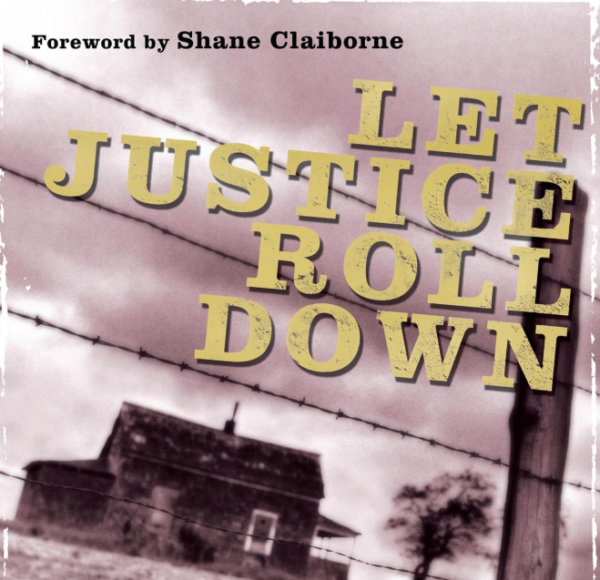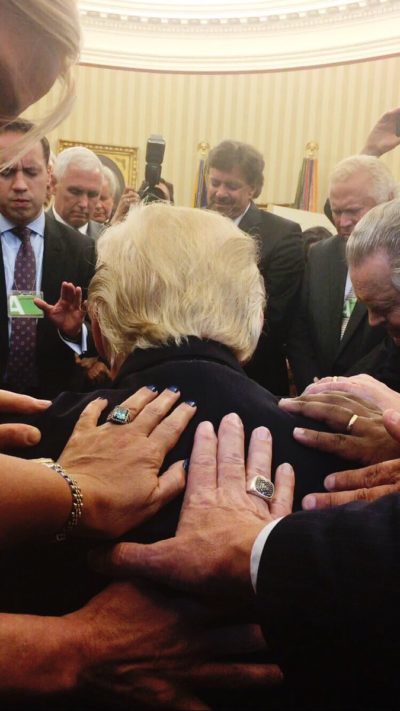Recently, Grace to You Executive Director Phil Johnson publicly questioned John MacArthur’s account of his whereabouts and activities on the night Martin Luther King, Jr. was murdered. In the past, Johnson has sharply criticized others, including me, for doing this. Since at least 2007, John MacArthur has claimed that he traveled to Memphis, TN with Charles Evers and John Perkins on the night Martin Luther King, Jr. was assassinated. He said he stood where James Earl Ray shot the fatal bullet.
Civil rights icon Charles Evers denied that he went to Memphis with MacArthur. John Perkins has refused to comment on the record but empowered his daughter Deborah Perkins to speak for his foundation on the matter. She told me that Charles Evers denial is accurate.
In a recent interview with Justin Peters, Johnson was asked about MacArthur’s story. I have a transcript of what he said beginning at 51:40 and will comment below.
I think it’s possible that John has compressed the timeline of those events in his mind but he absolutely did go with John Perkins and his team to Memphis and stand on the balcony of the Lorraine Hotel. He says within hours, I think it might have actually been within 48 hours or 72 hours after the assassination, it was right afterwards, and John describes how the blood stains were still on the balcony and that’s a matter of historical fact.
In fact, I read one story that I’m eager to find the facts on this one. But that in order to preserve some of the stuff people in the area had actually cut that piece of concrete with the blood stain out and moved it, removed it, and it’s been replaced where it originally was at the Lorraine Hotel and covered up with plexiglas so you can see the blood stain, apparently even until today.
There’s an article online titled something like, ‘the blood stain that won’t go away’ or something like that so can read about the facts of that.
But anyway, he, John describes how he was in the room where, uh, James Earl Ray shot the fatal bullet. Here’s how I know John’s memory on it isn’t exactly precise in every detail. ‘Cause he said he stood on the toilet where – he he he was in the room where the toilet was that James Earl Ray stood on when he shot MLK. The fact is he [Ray] was standing in the bathtub, There is a toilet right next to I, but he was, he was standing in the bathtub.
Little facts like that, that I think John misremembers, but the fact is, he was there, and there are other eyewitnesses who will verify that.
One of them is the president of Shasta, I think it’s called Shasta Bible College. Okay so, let me read this. The president of Shasta Bible College, his name is David Nicholas. He was part of that team that John was with when he was when all of that happened, and he has written a fairly thorough account of that summer with John Perkins. I say fairly thorough, it’s a letter. He wrote a lengthy letter to his constituents and described some of the same events that John described. And when I saw this letter. I took it to John and I said, “Do you remember this guy?” and John goes, “Oh yeah, I remember, we went to college together.” Uh so, And he mentions that he was there. John was there. They went to the assassination site and all that. So he tells the same story John does.
This is confirming eyewitness testimony which I have sent to some of these people who are insistent on you know calling John a liar and all that.
There is this Detwiler guy who puts stuff out all the time. And uh you know, they simply ignore any testimony that would corroborate John MacArthur’s account, and cite the testimony of people who say they don’t remember John being there, as if that’s somehow proof that John MacArthur’s lying about this.
It’s not a lie. He may have some incidental details wrong, but I think we all have fuzzy – uh the details of our memories from 50 years ago are, tend to be a little bit fuzzy. That’s more than 50 years ago, isn’t it. That’s 53 years ago…So if you wanted to pick apart John’s story say it couldn’t have been hours later, well, it depends on what you count as hours. If it was 72 hours later, it actually, it’s credible. And in fact there are photographs of the balcony of the Lorraine Motel, within days after the assassination, loaded with people looking and seeing and wanting to visit…
The other eyewitness Johnson mentioned here is David Nicholas, who was then the Director of Admissions at Los Angeles Baptist College. Nicholas, who is now president of Shasta Bible College, said he accompanied MacArthur on some of his preaching trips to MS and claimed in a June 2020 letter to Shasta constituents that he was along with Perkins and MacArthur on this trip to Memphis.
Despite what Johnson says here, Nicholas’ account is at odds with MacArthur’s. MacArthur makes it sound as if the group went to Memphis the night King, Jr. was murdered, whereas Nicholas (see the full letter here), said they went “later” (no closer to the murder than the next day after the 10am meeting with the sheriff). The whole account of how they heard of the murder is different than MacArthur’s. The account of the arrest is also different. Here is the relevant information from the letter:
One night after our team ministered at Voice of Calvary Church, we walked in the darkness to our car (there were no street lights in the black quarter of Mendenhall) and started to leave. Almost immediately, bright red lights came on behind us. It was the local Sheriff. He pulled us over and asked for John MacArthur’s driver license. This was a problem because John had unintentionally left his license back at our motel. The Sheriff then demanded that we show up at his office the following day at 10:00 a.m. Our entire team arrived on time and as we walked in, the officeradio was blaring out the news that Rev. Martin Luther King had been assassinated in Memphis. We were shocked by this news but astounded by the jubilant reaction of the law enforcement officers in the Sheriff’s office. Why? Because when we failed to join their jubilation, the Sheriff was not happy. He informed us that he knew why we were there in Mendenhall (assuming we were civil rights workers helping John Perkins). I’ll never forget the name tag on his uniform. It said, “Sheriff Willis.” He continued by telling us, “I’ve been Sheriff of this town for 25 years and my daddy before me and my granddaddy before him. You step out of line one time and we’ll take care of you and do it all legal-like.” He then threatened to beat us, mentioning the use of a belt, which was probably an idle threat since there were five of us; and after John MacArthur produced his license, we breathed a sigh of relief as we left his office. All we wanted to do was to assist John Perkins in reaching the black community for Christ, and being from CA where attitudes were far different, we were shocked by the Sheriff’s reaction both toward the assassination of MLK and us!
Following our encounter with the Sheriff, John Perkins suggested we visit his friend, Charles Evers, Mayor of Fayette, MS, brother of American civil rights activist, Medgar Evers, who was assassinated July 2, 1963 in Jackson, MS. He drove all five of us through the barricades erected to control the crowds of black folk protesting the death of Dr. King. There we were, five white guys being driven by a black man, something that in those days was certain to raise suspicion. As we drove through they yelled out, “Are you guys “soul?” We quickly answered, “Yeah, we’re “soul.” When we finally made it to Mayor Evers’ office, John Perkins introduced us and as we sat before him sharing why we were there, a red phone rang on his desk. It was President Lyndon Baines Johnson, begging Mayor Evers to come to Wash., D.C. and help quell the protests there. Mayor Evers replied, “I’m sorry Mr. President, I can’t come. I have my hands full here.” Later we traveled to Memphis and stood on the balcony of the Lorraine Motel where Dr. King was shot and looked out the window of the bathroom of the rooming house where James Earl Ray aimed his .30-06 at Rev. King. But as a result of that meeting with Mayor Evers, our team, including John MacArthur, myself, and three other musically talented men from BIOLA University, were asked to speak and minister in music at public school assemblies all around Jackson, Fayette and Mendenhall.
These details are the kind that can easily become altered by time. My issue here is not that small details may have been rearranged by time. I write to update my previous posts on the subject with these acknowledgements by Johnson and the new information from Nicholas.
I also note that Johnson is free to question MacArthur, but the motives of others are insulted when they do. Unknown to me, Johnson told blogger Brent Detwiler that I made “evil insinuations” in my article on this topic when I reported what John Perkin’s daughter Deborah said she was authorized by John Perkins to say about the subject. Johnson also told Detwiler that I made no effort to get John Perkins to answer the question: “Is it true that you went with John MacArthur to the Lorraine Motel in the wake of the MLK assassination?” That statement was false when he made it, and it remains so.
John Perkins’ Puzzling Silence
One of the aspects of this story that remains puzzling to me is why John Perkins has refused to comment directly. If his experience corroborates MacArthur and Nicholas, then what does he gain by remaining silent? When I asked Deborah Perkins about this, she said John MacArthur was a friend of Dr. Perkins and that was all they wanted to say. However, this line of responding implies that Dr. Perkins’ candid response would not be favorable to their friendship. If Perkins’ reply would support MacArthur’s account, why wouldn’t a friend say so?
The entire interview with Phil Johnson:

